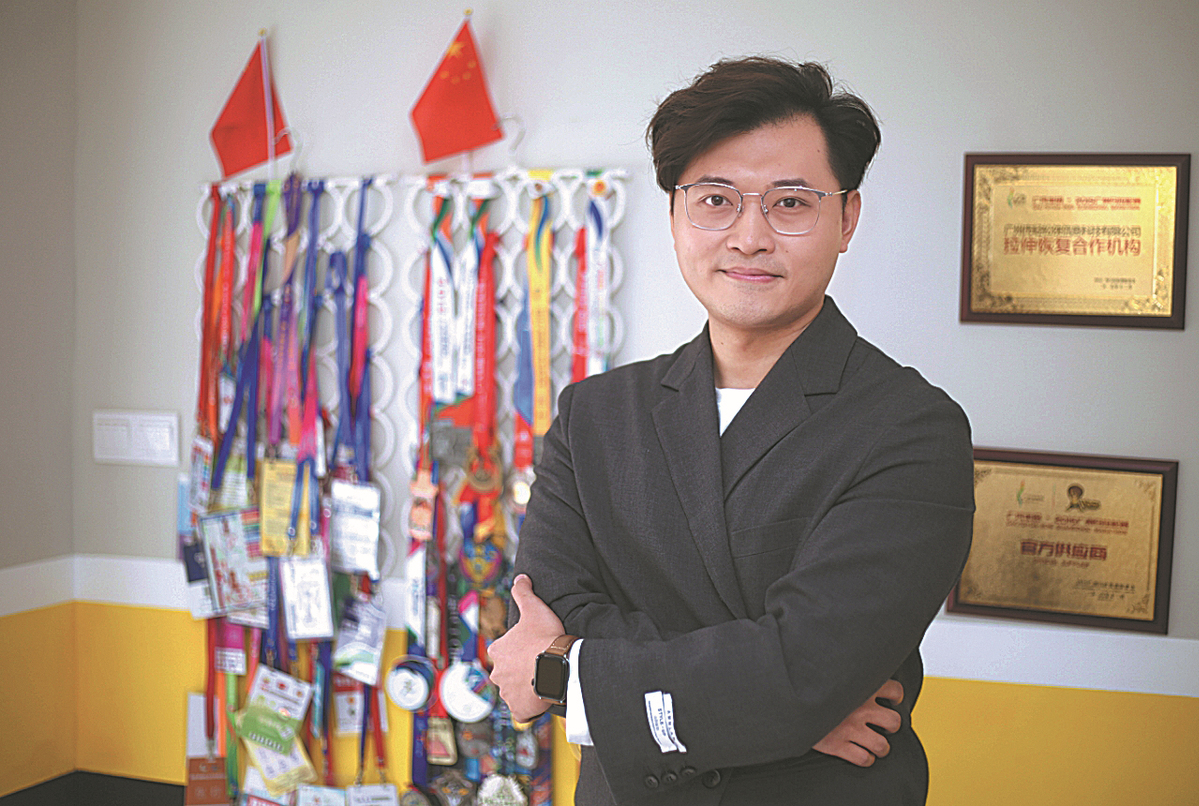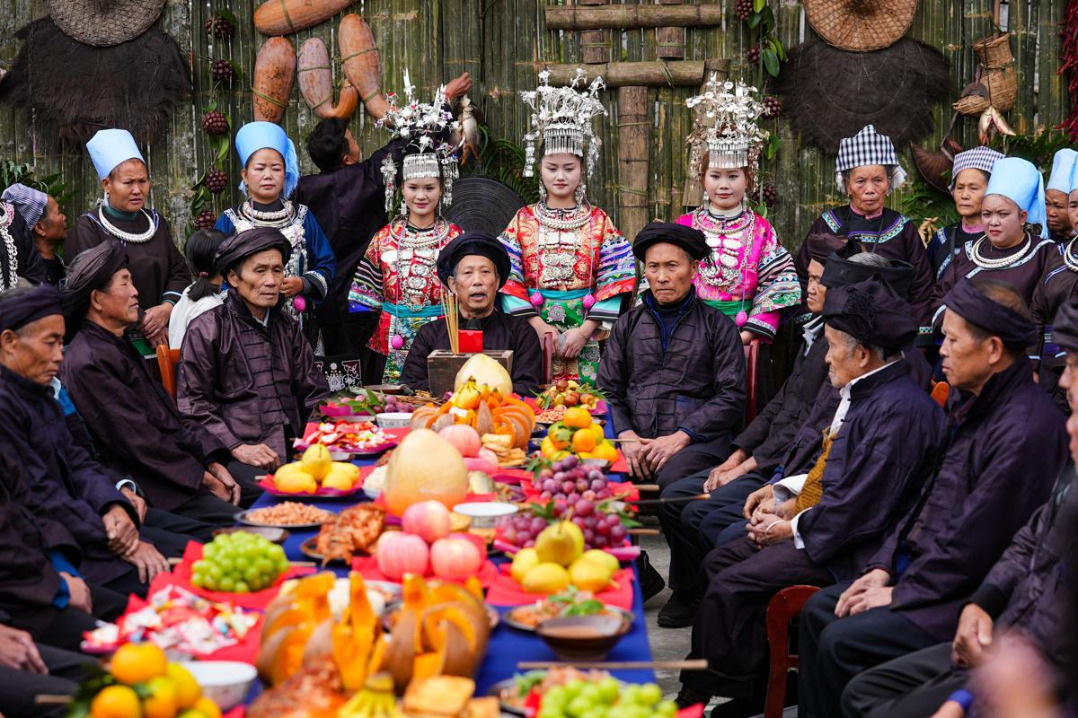Stretching is a growing success in city


After rocky start, entrepreneur has introduced therapy, plans expansion
Waldo Wong said he hasn't returned to Hong Kong much in recent years.
The young entrepreneur from the Hong Kong special administrative region said that apart from the COVID-19 pandemic, it's because he has become used to life in Guangzhou, capital of Guangdong province. He now returns to see family and friends about once a year.
"Living in Guangzhou is more convenient than Hong Kong," Wong said.
"Guangzhou has advanced public transport networks, and more importantly, I can use my mobile phone to go shopping as mobile payment covers almost everything in the city," he said, adding that Alipay and WeChat have not yet been accepted at many shopping centers and stores in Hong Kong.
Born in 1984, Wong said that he had made the right decision to start his business in Guangzhou about a decade ago.
After studying sports rehabilitation and stretching in Australia, he set up his first stretching center in Guangzhou's Liwan district in 2011 together with a partner from Hong Kong.
It mainly offered rehabilitation and stretching to those suffering from sports injuries, or who had backaches, muscle fatigue or joint pain as a result of work.
But the center soon closed after Wong failed to find the right marketing methods, and his partner quit and returned to Hong Kong.
At the time, he was copying traditional marketing methods, placing adverts on TV and distributing promotional leaflets, but he said that many residents did not understand the usefulness of his services.
After discussing the matter with family, Wong decided to continue his business in Guangzhou, as sports rehabilitation and stretching had already become popular elsewhere in the world, and he believed it had great potential in the mainland.
He started another center in the city after cooperating with the organizing committee of the Guangzhou Marathon in 2008 to provide free stretching to competitors to help them combat fatigue and recover from the long run.
"The Guangzhou Marathon is one of the major marathon events on the mainland and attracts thousands of enthusiasts annually. Many runners were able to feel the benefits of stretching after they finished," Wong said.
People began to understand that stretching can have a similar effect to massage, cupping and physiotherapy that traditional Chinese medicine doctors offer.
Over the next few months, Wong expanded cooperation to universities, hospitals and sports departments and associations to promote his services and train more physical therapists. Now, people are more familiar with stretching and have started to seek him out on their own.
Wong has five stretching centers in prime destinations in Guangzhou that employ 20 therapists and staff, and all are doing brisk business.
"One center can receive more than 40 clients a day, and people often have to book in advance," he said.
Wong said that sports rehabilitation and stretching is still emerging in China, but it has great potential now that people have started to pay more attention to their health and the number of people with suboptimal health is rising.
He said he plans to open at least 40 centers in Guangzhou in the next two years to meet growing demand and expects to be able to employ around 200 therapists and administration personnel.
He is also considering opening centers in other mainland cities in the coming years, once he has filled the needs of the market in Guangzhou.
To this end, Wong said he is again expanding cooperation with universities, sports departments and hospitals to train more physical therapists.
Today, around 40 percent of his clients are office workers and sports and fitness enthusiasts, many of whom visit his centers after work or exercise.
The Guangzhou city government and other related departments have introduced a series of preferential policies to attract young people from Hong Kong and Macao to start businesses or find employment in the city in recent years.
Wong said he rents an apartment owned by the government at 30 percent of the market price and an office at 50 percent of the market price.
Both are located in Tianhe, a prime district in Guangzhou.
According to Wong, the cost of starting a business in Guangzhou is much lower than in Hong Kong.
Meanwhile, the city government and related departments organize special forums and lectures to explain national and local policies, laws and regulations to help Hong Kong and Macao youth start businesses and integrate into city life. Trips to museums and historical relics are also organized to help them better understand the culture and history of their motherland, he added.
Lai Wenjun, one of Wong's employees, said that his employer is a man of lofty ideals.
"He loves his motherland and is happy to contribute to the development of the country," he said.
Lai, who currently works in a stretching center in Haizhu district, said he believes Wong and his centers will have a bright future on the mainland.
- Shenzhou XXI astronauts enter space station
- China's Shenzhou XXI crewed spaceship docks with space station combination
- Annual report on rule of law in China released
- Launch of Shenzhou XXI crewed spaceship a complete success: official
- Humanoid robot to carry torch in Shenzhen relay
- Guangdong, Hong Kong, Macao volunteers join for 15th National Games




































